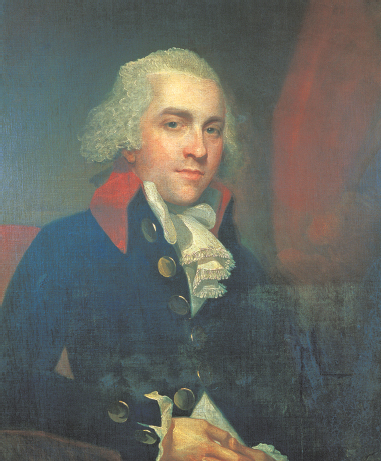Grenville’s Sugar Act.
Printed Page 140 Chapter Chronology
Grenville's Sugar Act. To find revenue, George Grenville scrutinized the customs service, which monitored the shipping trade and collected all import and export duties. Grenville found that the salaries of customs officers cost the government four times what was collected in revenue. The shortfall was due in part to bribery and smuggling, so Grenville began to insist on rigorous attention to paperwork and a strict accounting of collected duties. The hardest duty to enforce was the one imposed by the Molasses Act of 1733 — a stiff tax of six pence per gallon on any molasses imported to British colonies from non-British sources. Rum-loving Americans, however, were eager to buy molasses from French Caribbean islands, and they had ignored the tax law for decades.

Grenville's inspired solution was the Revenue Act of 1764, popularly dubbed the Sugar Act. It lowered the duty on French molasses to three pence, making it more attractive for shippers to obey the law, and at the same time raised penalties for smuggling. The act appeared to be in the tradition of navigation acts meant to regulate trade (see chapter 4), but Grenville's actual intent was to raise revenue. The Sugar Act toughened enforcement policies. From now on, all British naval crews could act as impromptu customs officers, boarding suspicious ships and seizing cargoes found to be in violation. Smugglers caught without proper paperwork would be prosecuted, not in a local court with a friendly jury but in a vice-admiralty court located in Nova Scotia, where a crown judge presided. The implication was that justice would be sure and severe. Grenville's hopes for the Sugar Act did not materialize. The small decrease in duty did not offset the attractions of smuggling, while the increased vigilance in enforcement led to several ugly confrontations in port cities. Reaction to the Sugar Act foreshadowed questions about Britain's right to tax Americans, but in 1764 objections to the act came principally from the small numbers of Americans engaged in the shipping trades. From the British point of view, the Proclamation of 1763 and the Sugar Act seemed to be reasonable efforts to administer the colonies. To Americans, however, the British supervision appeared to be a disturbing intrusion into colonial practices of self-taxation by elected colonial assemblies. Benjamin Franklin, Pennsylvania's lobbyist in London, warned that "two distinct Jurisdictions or Powers of Taxing cannot well subsist together in the same country."
Sugar (Revenue) Act
1764 British law that decreased the duty on French molasses, making it more attractive for shippers to obey the law, and at the same time raised penalties for smuggling. The Sugar Act regulated trade but was also intended to raise revenue.